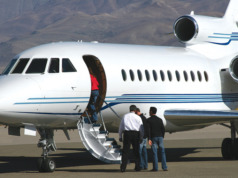
Do you know exactly what your aircraft insurance policy covers – and what it does not? “Insured” does not always mean “covered.”
An insurance policy is simply a contract between a seller (an insurance company) and buyer (you or your company) that defines the product being provided (a policy), the financial consideration for obtaining that product, and the compensation if a loss occurs. How can you best protect yourself should a loss occur?
The obvious first steps are to:
- Submit the insurance application accurately, honestly, and completely;
- Pay all the premiums on time; and
- Void doing anything operationally that would void the policy. And there’s more.
It is critical to thoroughly understand the insurance coverage you are purchasing. Most policies contain far more language to protect the insurance company than to protect you, the policy owner, in the event of a claim.
Insurance companies are not evil nor unscrupulous. Their policies generally do have specific requirements that must be met for the policy to continue to be valid. Typical examples are flight crew qualifications in the aircraft make and model, minimum logged time requirements and flight currency, mandated recurrent training, maintenance standards, avoidance of anything that even remotely appears to be a commercial operation for Part 91 aircraft owners, and adherence to Federal Aviation Administration rules and regulations. This list can – and usually does – go beyond these fairly common clauses.
Documentation Defends Your Demands
Fifty years ago, my first flight instructor made a simple statement, which still holds: “Write it down. Paper never forgets. The weakest paper is stronger than the strongest mind.”
While the conversation was about interacting with Air Traffic Control, the applicability is universal. Pilot logbooks with the type and amount of time in specific aircraft, any and all maintenance performed, compliance with Service Bulletins and Airworthiness Directives, and FAA issued pilot certificates cannot be disputed by the insurer if legitimate, accurate, and comprehensive documentation exists.
Know and Clearly Understand the Claims Process, and Who Controls It
As the policy owner, you do not establish the financial worth of an aircraft in the event a claim is filed, regardless of what the asset acquisition cost may have been. Likewise, you do not determine if the aircraft is repairable. These parameters are established by the company that issued the policy. When repairs are estimated to cost more than the “agreed value,” a policy provider will pay only the agreed value, less any deductible, and take possession of the aircraft.
While you certainly can dispute the insurer’s aircraft valuation or repair decision, that often leads to arbitration or legal proceedings. But now the law firm cash register begins ringing, which won’t thrill your CFO.
If you think the odds are stacked in favor of insurance companies, you would be correct. However, this doesn’t have to mean you have no defenses. Dig deeply into every proviso of the proposed policy and make sure that you pay attention to the basic policy language overall, specifically: Definition pages, Extension Of Coverage provisions, Endorsements, and Incident Reporting requirements.
Protect yourself by shopping for and comparing business aircraft insurance offerings from different providers to prevent any surprises after you’ve purchased a policy. And since an insurance policy is a legal contract, prudence dictates involving the services of a qualified attorney. Be sure that your counsel has specific aircraft insurance experience and expertise since aviation has unique operational rules and regulatory aspects.
All too often, aircraft owners and operators realize after the fact that while they were insured, they were not fully protected, Don’t wait until a loss has occurred and you are filing a claim to realize the extent, and the exclusions, of your insurance coverage. Learn from others’ experiences rather than the hard way!
Steve Fushelberger is a marketing and communications consultant to the business, general, commercial, and defense aviation industries. Possessing a Commercial Pilot license, he’s held senior leadership positions at Rolls-Royce, United Air Lines, Textron Aviation, and Leonardo.





